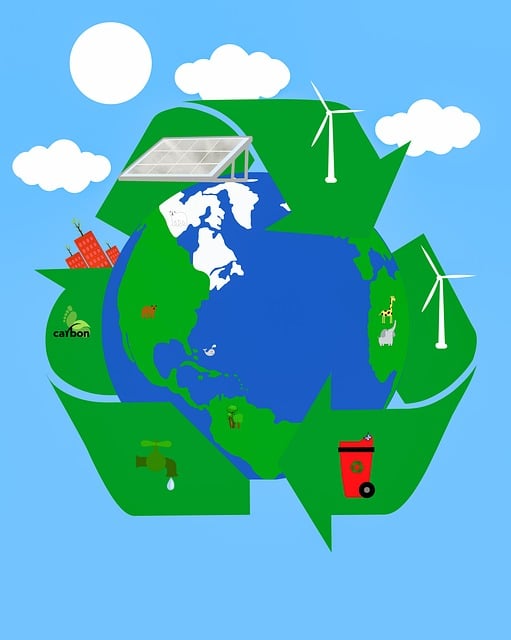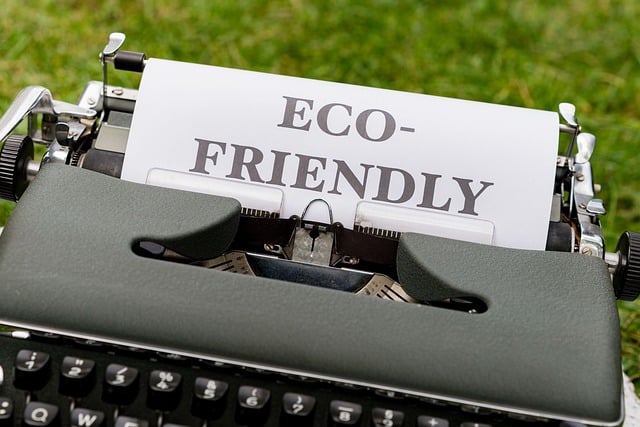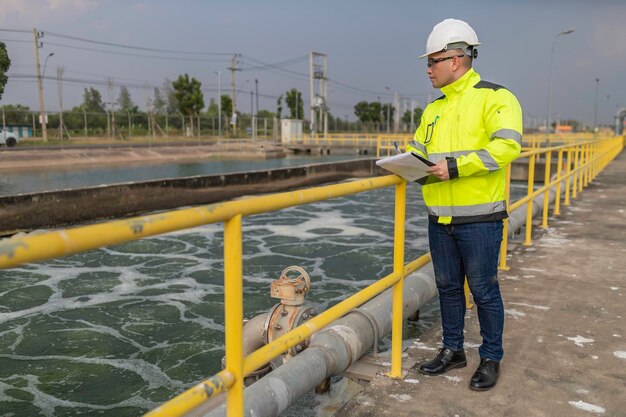Green chemistry, also known as sustainable chemistry, is increasingly becoming a cornerstone in the chemical industry. The focus on minimizing the use of hazardous substances and maximizing the use of renewable resources is driving innovations that are not only environmentally friendly but also economically viable. As the world grapples with the consequences of environmental degradation, environmentally conscious chemistry is paving the way for a future where industrial processes are sustainable, safe, and efficient.
The Shift Toward Renewable Resources

One of the most significant trends in green chemistry is the shift toward renewable resources. Traditional chemical manufacturing has long relied on non-renewable resources such as petroleum, leading to environmental issues like pollution and resource depletion. However, the advent of green chemistry is changing this narrative by promoting the use of renewable resources such as biomass, plant-based materials, and agricultural waste.
For instance, the production of bio-based plastics is gaining momentum as a sustainable alternative to conventional plastics. These plastics are derived from renewable resources like corn starch, sugarcane, and vegetable fats, significantly reducing the reliance on fossil fuels. Moreover, bio-based plastics are designed to be biodegradable, addressing the long-standing issue of plastic waste in the environment.
Another promising area in development is renewable chemicals. These chemicals are produced from renewable resources and are designed to replace hazardous components traditionally used in industrial processes. For example, bio-based solvents are emerging as alternatives to petroleum-based solvents, offering similar functionality with a reduced environmental footprint.
Also Read: Sustainable Practices In The Personal Care Industry
Advancements in Biodegradable Materials

Biodegradable materials are another focal point in eco conscious chemistry. These materials are designed to break down naturally, reducing the environmental impact of waste disposal. In the past, many industrial processes relied on non-biodegradable materials that contributed to pollution and landfill accumulation. Today, the trend is shifting towards the use of biodegradable materials in various industries, from packaging to pharmaceuticals.
Polylactic acid (PLA) is a prime example of a biodegradable material making waves in the industry. Derived from renewable resources like corn starch, PLA is used in a wide range of applications, including packaging, textiles, and medical devices. Its biodegradability ensures that it does not contribute to long-term environmental pollution, making it a key player in the sustainable chemistry movement.
In addition to PLA, other biodegradable polymers are being developed to replace traditional plastics in various applications. These polymers are designed to degrade under specific environmental conditions, ensuring that they do not persist in the environment for extended periods. As industries continue to adopt these materials, the reliance on hazardous substances and non-biodegradable materials is expected to decline significantly.
Green Catalysis and Its Role in Sustainable Chemistry
Catalysis is a fundamental aspect of chemical manufacturing, enabling reactions to occur more efficiently and with fewer resources. However, traditional catalysts often involve hazardous materials, posing environmental and health risks. Green catalysis, a key trend in green chemistry, aims to address these concerns by developing catalysts that are both efficient and environmentally benign.
One approach to green catalysis is the use of bio-catalysts, which are enzymes or other biological molecules that facilitate chemical reactions. Bio-catalysts are derived from renewable resources and operate under mild conditions, reducing the need for hazardous components and energy-intensive processes. Additionally, bio-catalysts can be engineered to be highly specific, minimizing the production of unwanted by-products and further enhancing the sustainability of chemical processes.
Another promising development in green catalysis is the use of solid acid catalysts. Unlike traditional liquid acid catalysts, which are often corrosive and difficult to handle, solid acid catalysts are safer and more environmentally friendly. They can be easily separated from reaction mixtures, reducing the generation of hazardous waste. Furthermore, solid acid catalysts can be regenerated and reused, aligning with the principles of eco friendly chemistry.
The Role of Green Chemistry in Reducing Chemicals Hazards
One of the primary goals of eco conscious chemistry is to reduce or eliminate the use of hazardous substances in chemical processes. This goal is achieved through the development of safer chemicals, the adoption of sustainable practices, and the use of alternative resources. The result is a significant reduction in the environmental and health risks associated with chemical manufacturing.
For example, the development of non-toxic flame retardants is a major advancement in chemistry. Traditional flame retardants often contain hazardous substances that can leach
into the environment and pose health risks to humans and wildlife. Eco conscious chemistry has led to the creation of non-toxic, bio-based flame retardants that provide the same level of fire resistance without the associated dangers.
Another area where eco conscious chemistry is making strides is in the reduction of volatile organic compounds (VOCs) in paints and coatings. VOCs are hazardous substances that contribute to air pollution and have been linked to various health issues. Sustainable chemistry has enabled the development of low-VOC and zero-VOC paints, which significantly reduce the release of these harmful substances into the environment.
Innovations in Green Solvents
Solvents are essential in many chemical processes, but traditional solvents often involve hazardous materials that are harmful to both the environment and human health. Eoc conscious chemistry is revolutionizing this aspect of chemical manufacturing by promoting the use of green solvents—substances that are environmentally benign and derived from renewable resources.
One such innovation is the use of supercritical carbon dioxide (CO2) as a green solvent. Supercritical CO2 is a fluid state of carbon dioxide that acts as a solvent under high pressure and temperature. It is non-toxic, non-flammable, and can be easily recycled, making it an ideal alternative to traditional organic solvents. Supercritical CO2 is used in a variety of applications, including the extraction of natural products, the decaffeination of coffee, and the cleaning of electronic components.
Ionic liquids are another emerging class of green solvents. These liquids are salts that are liquid at or near room temperature and have unique properties, such as low volatility and high thermal stability. Ionic liquids can be tailored to dissolve specific compounds, making them highly versatile and effective in various chemical processes. Furthermore, they can be reused multiple times, reducing waste and environmental impact.
Sustainable Chemistry and Circular Economy
The concept of a circular economy is closely linked to eco conscious chemistry. A circular economy aims to minimize waste and make the most of resources by creating closed-loop systems where materials are reused, recycled, or regenerated. Eco conscious chemistry plays a crucial role in enabling a circular economy by designing chemical products and processes that are inherently sustainable.
For example, sustainable chemistry promotes the use of renewable feedstocks that can be regenerated or recycled, reducing the reliance on finite resources. It also encourages the design of products that are easy to disassemble and recycle, ensuring that valuable materials are not lost at the end of their life cycle. By integrating eco conscious chemistry principles into the circular economy, industries can achieve greater sustainability and reduce their environmental footprint.
The Future of Eco Conscious Chemistry
The future of environmentally conscious chemistry is promising, with ongoing research and development driving innovations that will further enhance the sustainability of chemical manufacturing. As regulations tighten and consumer demand for environmentally friendly products grows, industries are increasingly adopting eco conscious practices to stay competitive and meet these expectations.
One area of future development is the exploration of new renewable resources, such as algae, for the production of bio-based chemicals and materials. Algae are fast-growing and can be cultivated in a variety of environments, making them a sustainable source of raw materials for the chemical industry.
Another exciting development is the advancement of computational chemistry and artificial intelligence (AI) in eco conscious chemistry. These technologies can accelerate the discovery of new green chemicals and processes by simulating chemical reactions and optimizing them for sustainability. AI-driven research is expected to play a significant role in the future of eco conscious chemistry, enabling faster and more efficient innovation.
Also Read: The Role of the Environmental Protection Agency (EPA) in Chemical Regulations
How Elchemy.com Supports Sustainable Chemical Manufacturing
At Elchemy.com, we are committed to helping chemical companies transition to more sustainable practices by leveraging the latest advancements in eco conscious chemistry. Our team of experts collaborates with clients to develop customized solutions that minimize the use of hazardous components and maximize the use of renewable resources. We offer a wide range of services, from the design of green chemical formulations to the implementation of sustainable manufacturing processes.
Our approach is grounded in the principles of sustainable chemistry, ensuring that our clients can achieve their environmental goals without compromising on performance or profitability. By partnering with Elchemy.com, chemical companies can not only reduce their environmental impact but also gain a competitive edge in an increasingly eco-conscious market.











